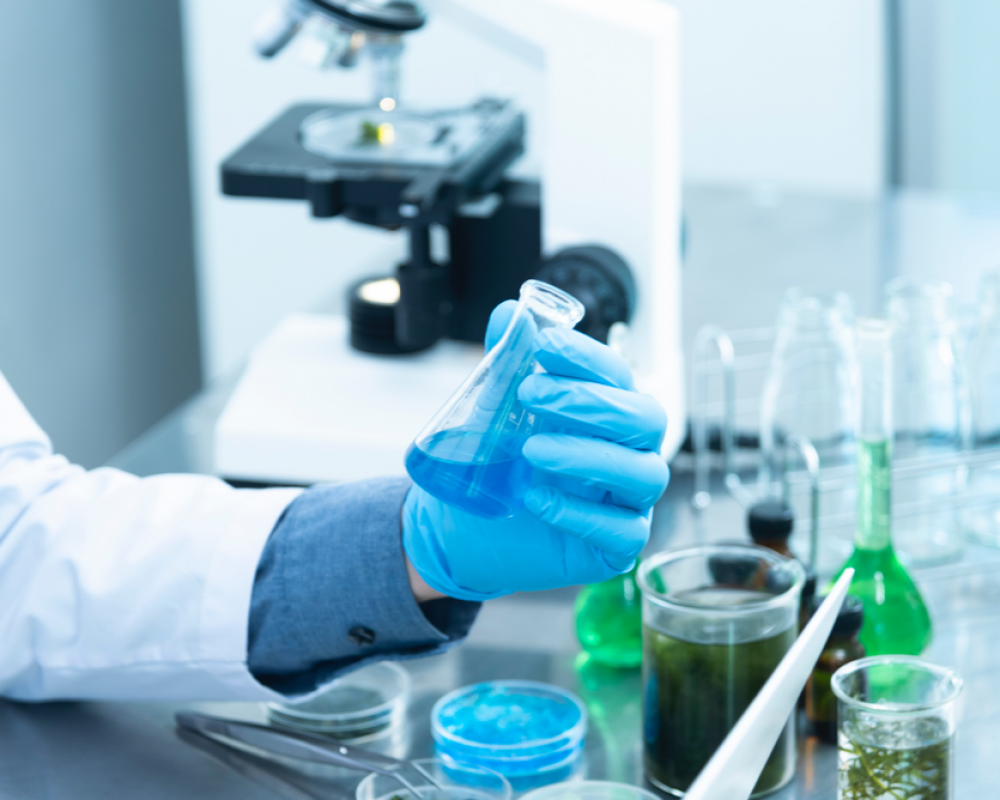
BDC awarded further funding to research biohydrogen production for the UK transport sector
Following on from the successful Hydrogen BECCS Innovation Programme Phase 1 funding for the H2-Boost project, the Biorenewables Development Centre (BDC) and partners have successfully been awarded £5 million for a phase 2 project. This is funded by the Net Zero Innovation Portfolio (NZIP) that has been awarded by the Department for Energy Security and Net Zero.
H2Boost aims to produce biohydrogen for the UK transport sector by integrating an advanced oxidation and enzymatic pre-treatment technology of bio-based feedstocks, conversion to bio-hydrogen by dark fermentation (DF) and down-stream processing of by-products via anaerobic digestion, microbial CO2 capture and storage.
Building on the work of phase 1, under-utilised, low-value feedstocks will be subjected to different pre-treatment conditions to improve biohydrogen yields and reduce the residency time of nutrient-rich streams in DF. The fermentation by-products, namely anaerobic digestion digestate, will be used as substrates for algal propagation and anaerobic digestion to achieve a closed-loop system for enhanced biomethane yield and carbon capture and storage (CCS). This multi-step process aims to create a technology that is financially viable and environmentally sustainable. Input from the supply chain, market engagement, techno-economic and life cycle analysis will demonstrate process environmental and commercial sustainability.
Deborah Rathbone, Bioscience Innovation Team Manager, Biorenewables Development Centre commented:
We are delighted to be awarded phase 2 funding to further develop biohydrogen for the UK transport sector. Working with our nine partners, the University of Leeds, Qube Renewables, Aardvark EM, WSP, Cyanocapture Ltd, The Maltings Organic Treatment Ltd, AB Agri, NNFCC and CM90 Ltd, we have a real opportunity here to make a difference as the H2Boost objectives align with the UK ambition of reaching net-zero by 2050 with low carbon hydrogen-based technologies providing up to 35% of energy requirements.
The work undertaken by the consortium will contribute to the decarbonisation of the passenger and long-haulage transport sector which contributed to 16% of 2019 domestic GHG emissions. The growing demand for hydrogen to meet the UK net-zero ambitions will rely on processes such as those deployed by the H2Boost consortium.
The project combines expertise from academia and industry with support from a panel of external advisors on feedstock pre-treatment, fermentation, microbial analysis, and downstream processing. The integrated process developed by H2Boost partners will offer a novel reliable source of UK-produced low-carbon biohydrogen and high-value products with market applications such as biofertiliser and biofuels to help to address the use of high volume waste streams in generating biohydrogen.
The Hydrogen BECCS Innovation Programme supports technologies which can produce hydrogen from biogenic feedstocks and be combined with carbon capture. It forms part of the Department for Energy Security and Net Zero £1 billion Net Zero Innovation Portfolio, which aims to accelerate the commercialisation of innovative clean energy technologies and processes through the 2020s and 2030s. In total over £26 million of funding was awarded to enable 6 organisations, including 5 micro- and small- sized enterprises to deliver commercially viable hydrogen BECCS innovations.
Contact information
Penny Cunningham, Biorenewables Development Centre, University of York.
Penny.Cunningham@york.ac.uk
Notes to Editors:
The Biorenewables Development Centre
The Biorenewables Development Centre (a subsidiary of the University of York) is an open-access Research, Development and Demonstration organisation working at the interface between academia and industry to develop, scale-up and help commercialise bio-based products and processes. It provides clients with innovative ideas to convert plants, microbes and biowastes into profitable, high-value, greener products. It also offers a broad variety of technical services using state-of-the- art integrated R&D facilities in the fields of chemistry and biology. The centre also supports businesses by delivering desk-based assessments (e.g. market research, facilitating connections across the bioeconomy sector, and helping companies to find value across their supply chain. Through its BioVale innovation cluster team it offers support to build partnerships or collaborations in the bioeconomy.
About the Department for Energy Security and Net Zero
The Department for Energy Security and Net Zero will provide dedicated leadership focused on delivering security of energy supply, ensuring properly functioning markets, greater energy efficiency and seizing the opportunities of net zero to lead the world in new green industries.
The funding from the Hydrogen BECCS Innovation Programme comes from the department’s £1 billion Net Zero Innovation Portfolio which provides funding for low-carbon technologies and systems and aims to decrease the costs of decarbonisation helping enable the UK to end its contribution to climate change.
